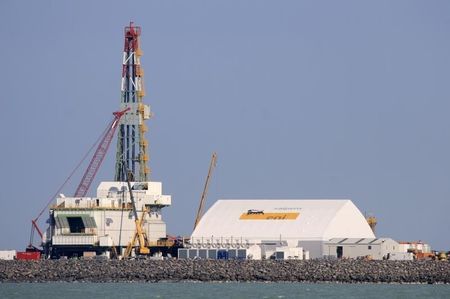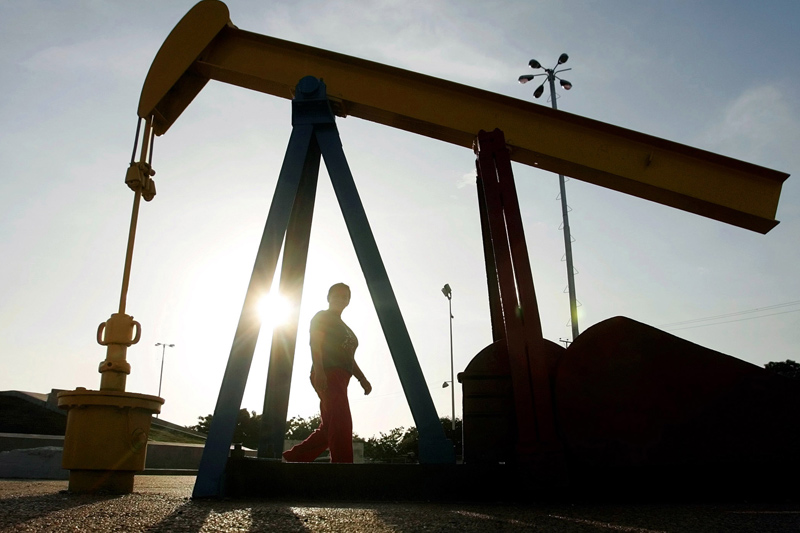By Dmitry Solovyov
ALMATY (Reuters) - Kazakhstan's giant Kashagan oilfield may resume production in the first half of 2016 under an "optimistic scenario", Kazakh Oil and Gas Minister Uzakbai Karabalin said on Wednesday, putting off his earlier estimate of the restart date.
Production from the oil deposit in the Caspian Sea, one of the world's biggest oil finds of recent times, began last September but was halted in October after gas leaks in the field's pipeline network were detected.
Karabalin told Reuters in an interview last month that Kashagan might "realistically" resume output in early 2016.
But due to the complexity of repair works at the deposit, it could take longer to restart production, he told a news conference on Wednesday.
"Under an optimistic scenario, the beginning of production will be in the first half of 2016," Karabalin said. "Under another scenario, taking into account the completion of a (new) gas pipeline, this may be the second half of 2016.
"But these dates have yet to be defined more exactly."
Recoverable reserves at Kashagan are estimated at 9 billion to 13 billion barrels of oil.
Kazakhstan, the second-largest post-Soviet oil producer after Russia, had originally planned to produce up to 8 million tonnes at Kashagan in 2014.
But due to the field's stalled production, the Central Asian nation will struggle to maintain its 2014 oil output at last year's level of 81.7 million tonnes, Karabalin said.
He said the North Caspian Operating Company consortium (NCOC), which develops the field, now had to replace the total network of oil and gas pipelines which is almost 200 km (125 miles) long.
The production of new pipes for Kashagan would start in August and their first shipment was expected in December, Karabalin said. He did not say who would supply the pipes, nor did he give the estimate for the cost of the new pipelines.
The length of repair works at Kashagan would to a large extent depend of the availability of special barges which will have to lay the pipelines in the Caspian Sea, Karabalin said.
NCOC has identified stress cracking due to sulphur-laden, highly corrosive gases as "the root cause of the pipeline issues" at Kashagan.
It said Japan's Sumitomo and JFE had provided the pipes, while Italy's Saipem (MI:SPMI) had been contracted to lay them.

NCOC includes Eni (MI:ENI), ExxonMobil (N:XOM), Shell (L:RDSa) and Total (PA:TOTF), holding 16.8 percent each. Kazakh national oil and gas firm KazMunaiGas [KMG.UL] has 16.87 percent, China's CNPC [CNPET.UL] 8.33 percent and Japan's Inpex (T:1605) holds 7.6 percent.
(Reporting by Dmitry Solovyov and Mariya Gordeyeva; editing by Jeremy Gaunt)
